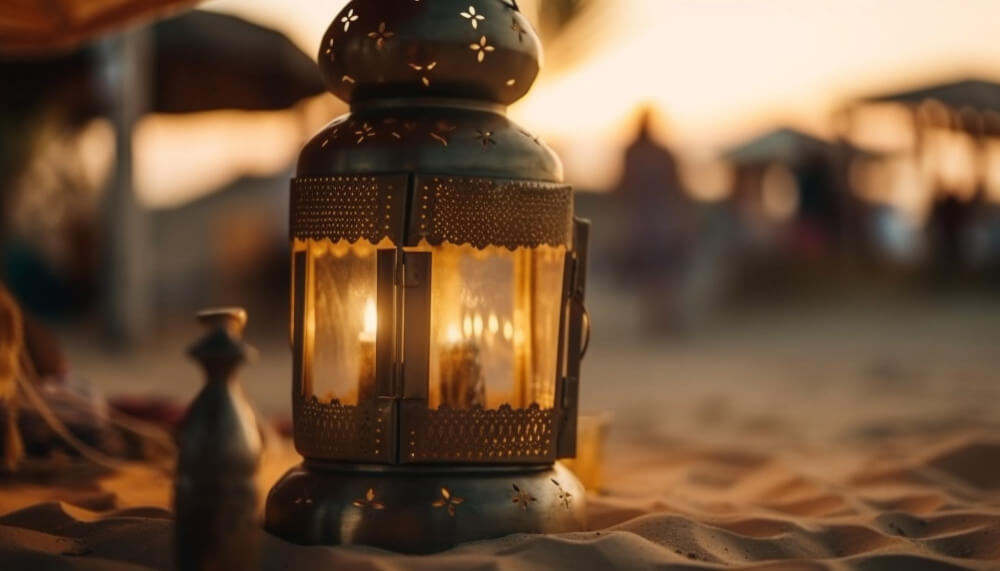| Rosette Rafaat | 2024-03-25 05:57:08 |
Ramadan, a month of profound spiritual significance for Muslims worldwide, holds a special place in the hearts of Egyptians. Steeped in centuries-old traditions and cultural practices, Ramadan in Egypt is a time of spiritual reflection, communal bonding, and vibrant festivities.
As the crescent moon marks the beginning of this holy month, the streets of Egypt come alive with the sights, sounds, and flavors unique to Ramadan. Let us delve into the essence of Ramadan Egypt, exploring its rich types of customs, food, and spiritual observances.
Ramadan 2024: The Sacred Month of Fasting
When is Ramadan in Egypt 2024? Ramadan, the ninth month of the Islamic lunar calendar, is observed by Muslims as a period of fasting from dawn till dusk. For Egyptians, fasting during Ramadan is not merely an obligation but a deeply cherished tradition that fosters self-discipline, empathy, and piety.
From the breaking of the fast at sunset, known as "Iftar," to the pre-dawn meal, or "Suhur," each moment of the day holds profound spiritual significance, fostering a sense of unity among believers.
Ramadan Egypt: community and generosity
One of the hallmark features of Ramadan Egypt is the spirit of community and generosity that pervades every corner of the country. Families, neighbors, and even strangers come together to share meals, offer charity to the less fortunate, and extend hospitality to all.
The tradition of "Mawa'ed al-Rahman," or charity tables, where individuals set up communal dining areas to provide free meals for those in need, exemplifies the ethos of compassion and solidarity that defines Ramadan in Egypt.
ُُEgyptian Ramadan Decorations
Why is Ramadan celebrated in egypt? As the sun sets and the call to prayer echoes across the city, Egypt's streets transform into bustling hubs of activity during Ramadan nights. From lively bazaars adorned with colorful lanterns, known as "Fanous," to vibrant food stalls offering an array of delectable treats, the atmosphere is nothing short of enchanting.
Families venture out after breaking their fast to enjoy the festive ambiance, dig deep into the traditional sweets like "Konafa" and "Qatayef," and engage in spirited conversations that last well into the night.
Spiritual Reflection and Devotion
Is it bad to visit Egypt during ramadan? No, beyond the festivities and food traditions, Ramadan Egypt is a time for profound spiritual reflection and devotion. Mosques are filled with worshippers engaged in special nightly prayers known as "Taraweeh," seeking spiritual rejuvenation and seeking forgiveness.
The recitation of the Quran, Islam's holy book, takes on added significance during this sacred month, with believers striving to complete its reading by the end of Ramadan. For many Egyptians, Ramadan offers a unique opportunity for introspection, repentance, and drawing closer to the divine.
Cultural Traditions and Customs
Egypt boasts a rich cultural traditions and customs that are deeply intertwined with the observance of Ramadan. From the iconic "Mesaharaty," the dawn caller who wakes residents for the pre-dawn meal with chants and drum beats, to the age-old tradition of "Fawanees," or colorful lanterns, which adorn homes and streets, these cultural elements add a unique charm to the Ramadan experience in Egypt.
Additionally, special television programs, known as "Fawazeer Ramadan," featuring quizzes and entertainment, are a beloved pastime for families during the month.
Ramadan Egypt: Culinary Delights
No discussion of Ramadan in Egypt would be complete without a nod to its mouthwatering culinary delights. From hearty soups like "Shorba" and savory dishes such as "Ful medames" to sweet treats like "Basbousa" and "Zalabia," Egyptian cuisine takes center stage during Ramadan.
Families gather around lavish feasts for Iftar, breaking their fast with an array of traditional dishes that reflect the country's diverse culinary heritage. The aroma of spices fills the air as Egyptians savor each bite, grateful for the blessings of sustenance and community.
Conclusion
In Egypt, Ramadan is not merely a month on the calendar but a time of profound spiritual significance, cultural richness, and communal unity. From the solemnity of fasting to the joyous gatherings with loved ones, every aspect of Ramadan in Egypt reflects the country's deep-rooted traditions and values.
As the crescent moon heralds the arrival of this sacred month, Egyptians across the land come together to partake in the age-old rituals, forging bonds of kinship and devotion that transcend time. Ramadan in Egypt is truly a celebration of faith, generosity, and the enduring spirit of community.
FAQs
What happens in Ramadan in Egypt?
During Ramadan in Egypt, Muslims fast from dawn till dusk, engaging in spiritual reflection and communal prayers. Families gather for lavish evening meals to break their fast, while the streets come alive with colorful decorations, bustling bazaars, and charitable acts. Special cultural and religious traditions enrich the atmosphere, fostering a sense of unity and devotion.
What closes in Egypt during Ramadan?
During Ramadan in Egypt, businesses typically adjust their operating hours, with some restaurants and cafes closing during daylight hours. Government offices and banks may also have reduced working hours. However, essential services such as hospitals, pharmacies, and transportation continue to operate, albeit with potential schedule modifications.
What are the working hours for Egypt during Ramadan?
During Ramadan in Egypt, working hours for businesses and government offices are often adjusted. Many businesses operate reduced hours, with some closing during daylight hours and reopening in the evening. Government offices may also have shorter operating hours. Essential services such as hospitals and transportation typically maintain regular schedules with potential modifications.
Are restaurants closed during Ramadan?
Some restaurants in Egypt may close during daylight hours in observance of Ramadan, reopening in the evening for Iftar (the breaking of the fast) and staying open late into the night.
